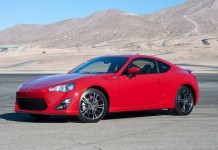Toyota Motor’s global sales in January were up 15.3 percent year-on-year, the company said Tuesday, as the Japanese automaker showed resilience despite being hit by massive recalls that month.
Toyota sold 537,454 vehicles in January, excluding subsidiaries Hino and Daihatsu Motors, a spokeswoman said.
The world’s largest carmaker sold 416,411 Toyota cars, buses and trucks overseas and 121,043 units in Japan, she added.
In Japan, sales jumped 45.3 percent during the same month from the previous year, while they gained 8.8 percent overseas, Toyota said.
Related article: Toyota must do ‘much better’ says chief
Toyota said it does not have global sales figures for Hino and Daihatsu.
The new figures underlined robust demand for the iconic Japanese automaker although it faces a deep crisis over its flawed accelerator and brake systems that have forced it to pull 8.7 million vehicles worldwide.
The company also said worldwide production jumped 55.8 percent to 643,925 units in January from the previous year.
Including Daihatsu and Hino vehicles, that figure amounted to an increase of 46.5 percent to 716,570.
But the major recalls in the United States, its biggest overseas market, as well as Europe and parts of Asia came toward the end of the month and may have a stronger impact on consumer sentiment in February.
“It may be difficult for Toyota to keep up the trend come February and beyond,” said SMBC Friend Research Center auto analyst Shigeru Matsumura, noting that sluggish US sales may dent the company’s outlook.
Toyota’s US market share fell 3.8 points to 14.1 percent in January after sales fell 15.8 percent to 98,796 vehicles, according to Autodata. That was the first time sales have fallen below 100,000 vehicles a month since January 1999.
Company president Akio Toyoda is set to face a grilling by US lawmakers Wednesday, after the company revealed Monday that documents had been subpoenaed in a US criminal investigation of its handling of the recalls.
Toyoda admitted last week in a press conference that the company would be forced to cut back production in order to avoid a build-up in inventories that would otherwise eat into the company’s bottom line.
“Our basic philosophy is to produce what we can sell and sell what the customer needs, so other than that we cannot help production adjustment,” the 53-year-old Toyota president warned.
Earlier this month the company said it expects to burn two billion dollars in earnings in the year to March 2010 due to the recalls, but still sees a net profit of 80 billion yen for the year against an earlier forecast of a loss.







